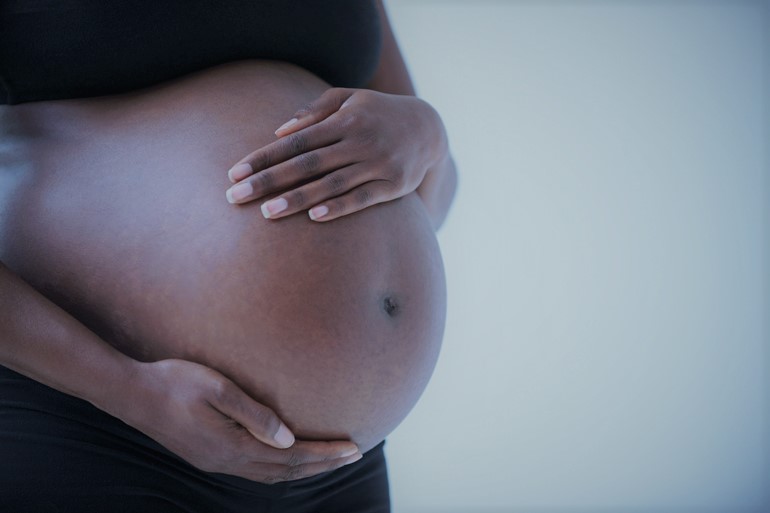By: Dr. Lauren Parker and Dr. Janiece Taylor
Dr. Shalon M. Irving dedicated her life to understanding how structural inequality affects health, yet she unexpectedly passed away three weeks after giving birth because of postpartum complications. She is a hallmark case that demonstrates the poor maternal outcomes plaguing Black women in the U.S. regardless of education or class. In the wake of “The Fierce Urgency of Now,” the Johns Hopkins Bloomberg School of Public Health’s symposium on Black maternal health honoring Dr. Irving’s legacy, researchers Janiece Taylor, PhD, MSN, RN, FAAN and Lauren Parker, PhD, MPH reflect on black motherhood and the narrative surrounding racial disparities in maternal health.
I am Janiece, a Black woman, a nurse, a researcher, and just last year, a mother.
I could not have been more grateful or felt more blessed than when I found out I was pregnant with my first child. But my joy quickly faded as well-meaning colleagues and friends sent stories my way that, combined with my own knowledge of women’s health, made me feel afraid. I worried about being 3 to 4 times more likely to die from childbirth than a non-Hispanic White woman. When colleagues solicitously asked how I was doing, I wondered are they concerned because statistics support me being high risk? Or worse, is there actually something wrong with me?
There was only so much I could do to escape the poor health outcomes that came with being a pregnant Black woman. I developed anxiety that made me question myself as a health equity researcher. I wondered, do the narratives I share about inequity benefit the populations I serve? Or like me, do they make them feel more anxious? We must expose the health inequities that plague underserved populations, but does sharing these stories without solutions cause more harm than good?
I am Lauren, a Black woman, an academician and scientist.
Dr. Irving and I attended the same alma mater, Hampton University, earned graduate degrees from Purdue University, and completed postdoctoral fellowships at Johns Hopkins University. I am still awaiting my bundle of joy, but I cannot help that I internalize Dr. Irving’s story and worry over the statistics regarding Black motherhood.
We know that biopsychosocial factors—racism, stress, or even the fear that your beautiful, Black child could be unjustly killed by the police—erode a Black mother’s health. We know that Black mothers’ effort spent coping with a race-conscious society can inhibit their health seeking behavior during pregnancy. This is clear because health promoting factors like higher education and even higher income do not always offset the poor health outcomes Black mothers experience during pregnancy and the postpartum period, as evident by the notable cases of Serena Williams and Kira Johnson.
Knowing that Black women are at risk is not enough. We must continue researching doula programs and extended postpartum care, and create tailored interventions for Black women during the antenatal and postpartum stages. Our research must make its way through the pipeline to reach women like Dr. Irving and like us. And we must continue advocating to make sure that health care polices address these inequities.
We cannot stop at ‘risk’ and remain paralyzed by fear.
This blog is a part of the “Dialogues in Health Equity” series by the Health Equity Faculty Interest Group. They are committed to decreasing health disparities experienced by local and global communities by promoting social justice and health equity through nursing practice, research, education, and service.
Dialogues in Health Equity
- We Need to Protect Black Moms
- Racism in Care: Speak Up to Save a Life
- Aggressive Use of Power, People of Color, and Its Silent Threat to Health
- Birth Companions
ABOUT THE AUTHORS:

Janiece Taylor, PhD, RN, FAAN, is an assistant professor at the Johns Hopkins School of Nursing, and faculty in the Center for Innovative Care in Aging. “I have a passion for helping aging populations,” she explains. “The aging process, especially when combined with disabilities, is not being researched enough.”

Lauren Parker, PhD, is an assistant scientist at the Center for Innovative Care in Aging and at Johns Hopkins Bloomberg School for Public Health. She is trained in health promotion and gerontology, her research interest is in understanding how social factors influences the health of marginalized populations throughout their lives.
